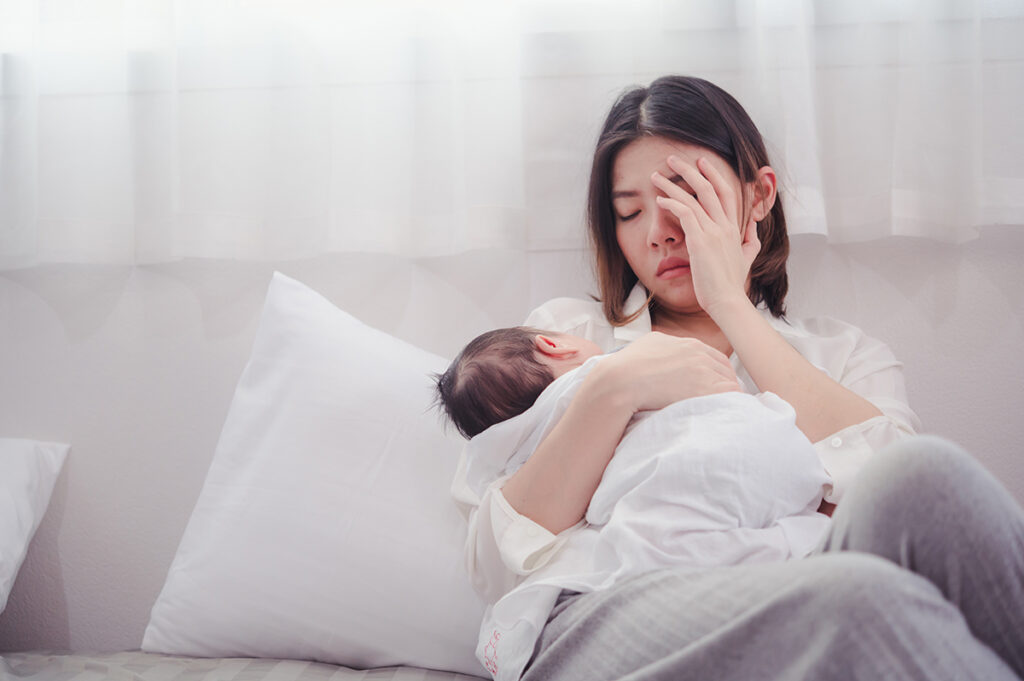Psychosis is a condition that causes unrealistic, irrational beliefs and can make people see, hear, smell and feel things that aren’t there. While mental health issues like schizophrenia can cause psychosis, some women can experience a break from reality after giving birth. What is postpartum psychosis, and how can you recover from it?
Definition
Many new parents, especially mothers, go through emotional ups and downs after having a baby. However, postpartum psychosis is different from the “baby blues.” It’s a severe mental illness requiring emergency medical intervention and treatment. During a psychotic episode, you may have trouble distinguishing reality from delusional thoughts or ideas. Postpartum psychosis can also lead you to hurt your baby or yourself.
Some women who experience postpartum psychosis have a family history of mental health disorders or have previously been diagnosed with conditions like bipolar disorder or schizophrenia. However, most have no previous psychiatric problems.
Symptoms
Postpartum psychosis may emerge suddenly and without warning shortly after giving birth. Symptoms can include:
- Auditory, visual, sensory or olfactory hallucinations
- Delusional thoughts or beliefs
- Mania or depression
- Loss of appetite
- Trouble sleeping
- Agitation
- Mood swings
- Restlessness, disorientation or confusion
- Irrational, uncharacteristic behavior
After childbirth, your body goes through a cascade of hormonal changes. Doctors think these may be what causes postpartum psychosis and the related conditions called postpartum depression and postpartum anxiety. Your risks may increase if this baby was your first, you had an unplanned pregnancy or you had dramatic shifts in your mood and behavior while pregnant.
Treatment
In the middle of a psychotic break, you may not recognize that you have become detached from reality. That’s why it’s vital to make sure your partner, friends and family members understand the warning signs of postpartum mental health conditions.
Ask people you trust to keep a close eye on you and your baby in the critical early stages of recovering from childbirth. They can call 911, your OB-GYN or your general practitioner for help if they notice any warning signs of postpartum psychosis or believe you are in any danger of harming yourself or your child.
Because psychosis involves delusional thoughts and impaired judgment, a successful treatment plan may begin with hospitalization for your safety. After evaluating your medical and psychiatric history, a physician may perform various physical and neurological screenings to rule out the presence of other illnesses that may be causing your symptoms. They may also prescribe you a mood-stabilizing medication such as lithium. With patience and an appropriate treatment plan, you can recover from postpartum psychosis and be ready to provide your baby with plenty of love and care.
You Are Never Alone
Becoming a parent or adding to your family is a significant responsibility, and some amount of nervousness and uncertainty is natural. However, if you find yourself struggling to take good care of yourself or your newborn baby, it’s time to seek help. At Canyon Crossing, we offer combined mental health and substance abuse treatment in our dual-diagnosis program. Our unique, women’s-only healing retreat gives women the tools they need to reclaim their health and live a life of freedom and happiness. To learn more about how we can benefit you, connect with us today.



